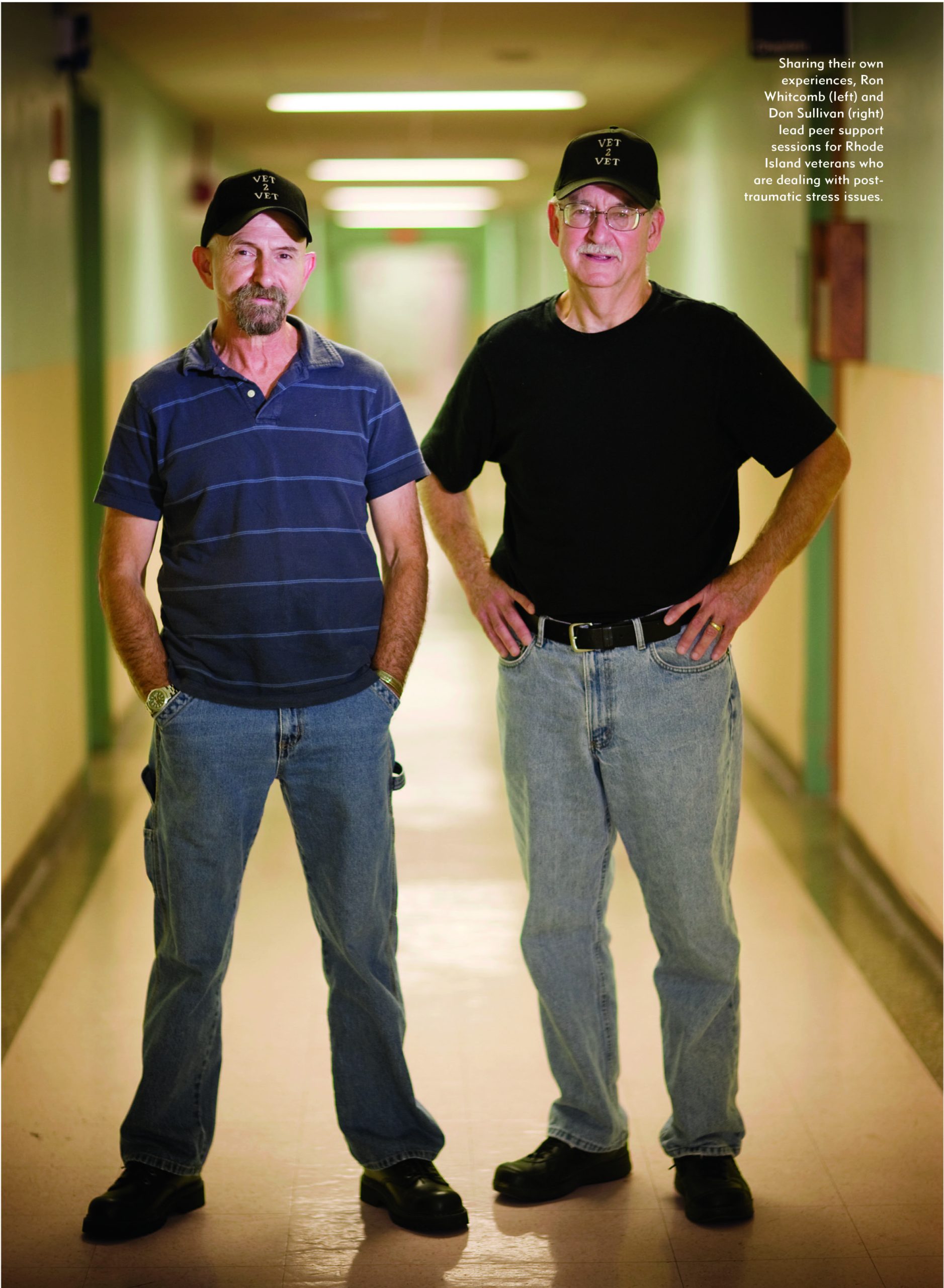Providence, RI: Ron Whitcomb and Don Sullivan
Ron Whitcomb and Don Sullivan, Vietnam vets and both on full disability for post-traumatic stress disorder (PTSD), met three years ago at a therapy session for their illness at the Veterans Affairs Medical Center in Providence, Rhode Island. They became close friends, and it was there, as their sessions began to wind down, that the […]

Sharing their own experiences, Ron Whitcomb (left) and Don Sullivan lead peer support sessions for Rhode Island veterans who are dealing with post-traumatic stress issues.
Photo Credit : Tibor NemethRon Whitcomb and Don Sullivan, Vietnam vets and both on full disability for post-traumatic stress disorder (PTSD), met three years ago at a therapy session for their illness at the Veterans Affairs Medical Center in Providence, Rhode Island. They became close friends, and it was there, as their sessions began to wind down, that the two of them wondered what was next. More specifically, Whitcomb and Sullivan wanted to know, were there any veteran-led support groups that could help them and others discuss and manage their day-to-day lives?
The answer: Not yet.
The two men knew what was needed. “You can deal with a counselor, and they can understand what you’re saying, but they can’t understand exactly what you’re talking about and what you did,” says Sullivan. “They’ve got the books but not the experience.”
In early 2008, when the VA announced that it was forming a series of peer-led session groups, the two friends jumped at the chance, creating a discussion group for male veterans–mostly those who’ve been treated for PTSD, but some others in need of different kinds of support as well. More than a year and a half after its creation, Operation Vet 2 Vet (or “the Ron and Don Show,” as it’s affectionately known) has taken root not just at the Providence VA Medical Center–where it has set up three weekly meetings–but at another veterans’ center in Warwick, too.
“It fills a very important need and a gap in our services,” says Michael Goldstein, M.D., chief of the mental health and behavioral sciences service at the Providence VA. “And [Ron and Don] have taken this program on in a way that was unanticipated, which has been thrilling to see.”
At the heart of Vet 2 Vet is what it’s not. These aren’t clinically driven sessions. Whitcomb and Sullivan don’t keep records; they don’t require attendance. The program’s meetings–which run at least one hour but often much longer–aren’t restricted to any one particular war. They’re not choked with nostalgia. As much as possible, they steer clear of what Whitcomb calls “old war stories.”
Instead, the veterans sit in a circle with up to a dozen others and talk about the present and how each person is coping with PTSD and other issues. The subject matter may range from relationships to work. In some cases, too, it can touch on validation. “There are guys who come here who’ve never told anyone they’re vets before,” says Sullivan. “Because they weren’t in combat, they’re having guilt issues about even having PTSD.”
Of course, Ron and Don are there to lead, but they’re also there to participate. As both of them see it, these sessions are a part of their wellness, too. They get to talk about what they’re experiencing and to show, by example, that a full, positive recovery from PTSD is possible.
“It’s been a helluva journey,” says Whitcomb. “If I hadn’t gone through the darkness like I did, I wouldn’t have developed the strength to help others. It’s a unique experience, and I’m lovin’ it.”
Learn more: 401-345-5457; site.operationvet2vet.com


